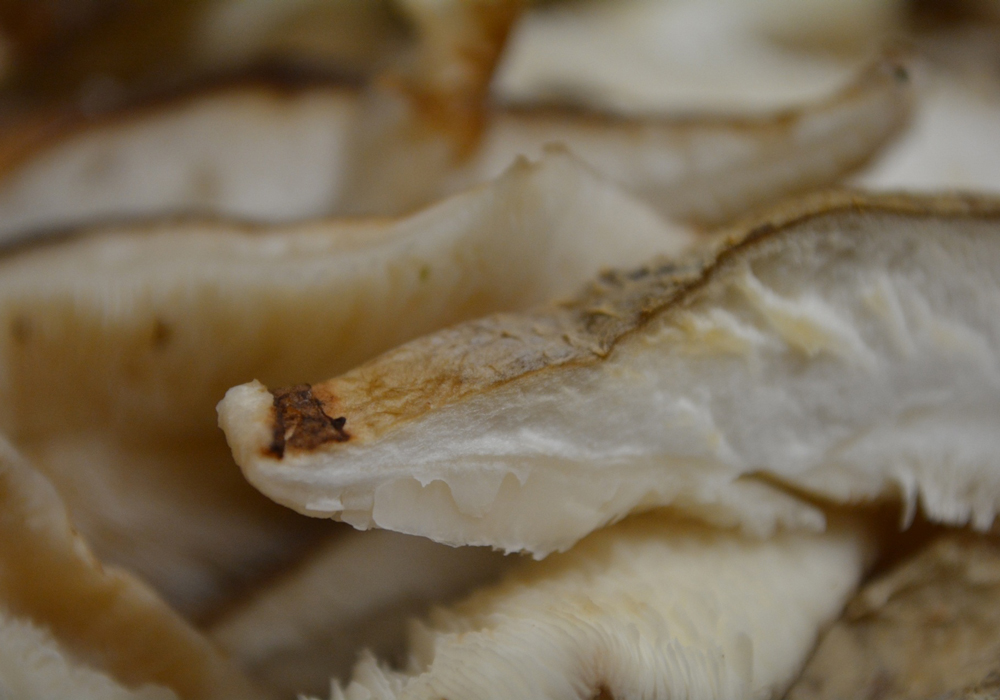By Jyothirmai Gubili, MS, K. Simon Yeung, Pharm D, LAc, and Cody Landis, BSN, RN, PCCN, LMT
Mushrooms have been valued for their health-promoting and medicinal effects for thousands of years. Research over the past few decades has focused on maitake (Grifola frondosa), reishi (Ganoderma lucidum), coriolus (Coriolus versicolor), shiitake (Lentinula edodes), and agaricus (Agaricus blazei), which are predominantly used in Asia.
Bioactive compounds derived from these mushrooms include polysaccharides known as glucans, as well as polysaccharide-protein complexes, some of which have been developed as anticancer treatments. They elicit antitumor, immunomodulatory, antioxidant, antiviral, antibacterial, antihypercholesterolemic, antidiabetic, and hepato-protective effects.
Supplemental forms include tablets, capsules, teas, and liquid extracts originating from both natural and artificially cultivated fruiting bodies and mycelial extracts; spores and their extracts are also used, but less frequently. Patients use them to improve immune function, as a cancer treatment, and to prevent recurrence.
Benefits and Risks of Medicinal Mushrooms
Mushrooms are generally considered safe to consume, and preliminary findings of their biologic effects are promising. These include immunomodulation, improving survival and quality of life in patients with cancer, and mitigating adverse effects associated with chemotherapy.
However, several cases of dermatitis have been reported following consumption of shiitake. Ingestion of agaricus as well as powdered reishi caused hepatotoxicity, with long-term consumption resulting in chronic diarrhea.
More importantly, for patients undergoing treatment and for those on maintenance therapies, concurrent intake of medicinal mushrooms can be detrimental. For example, because of their immunostimulatory activity, mushrooms can reduce the efficacy of immunosuppressive drugs. Their anticoagulant and antiplatelet properties enhance the activity of drugs that have similar actions, thereby increasing the risk of bleeding. In addition, low-grade hematologic and gastrointestinal toxicities were reported in patients with colorectal cancer following concomitant use of coriolus extracts with chemotherapeutic agents.
Furthermore, reishi was shown to interfere with cytochrome p450 enzymes and may affect the levels of substrate drugs metabolized by these enzymes. Similarly, because of its hypoglycemic activity, maitake may increase the effectiveness of hypoglycemic drugs that can be a concern in patients with diabetes.
What Oncology Nurses Need to Know
The number of patients who use both dietary and supplemental forms of medicinal mushrooms to fight cancer is rising. Available data from preclinical and small clinical studies indicate anticancer and immunomodulatory effects. But well-designed, randomized trials are needed to determine the true effectiveness of mushrooms, as are studies to evaluate safety of long-term use. Quality concern is also an issue as the active ingredients in supplemental forms can vary among manufacturers because of lack of strict standards for production, impacting their effectiveness.
Nurses are uniquely positioned to ensure maximal knowledge sharing between patients and providers. Many patients are reticent to divulge their use of supplements and other alternative methods to battle cancer or control symptoms. Through the development of respectful working relationships with patients, nurses in all settings can help patients understand the need for full disclosure of their entire care strategy. This is both to identify under controlled symptoms and ensure that what the patient is taking does not interact with their prescribed medications or treatment regimen to the detriment of the patient. Working as a collaborative team with patients, pharmacists, and providers can help ensure the best outcomes while allowing the patient informed autonomy about how they can approach their disease and symptoms.






